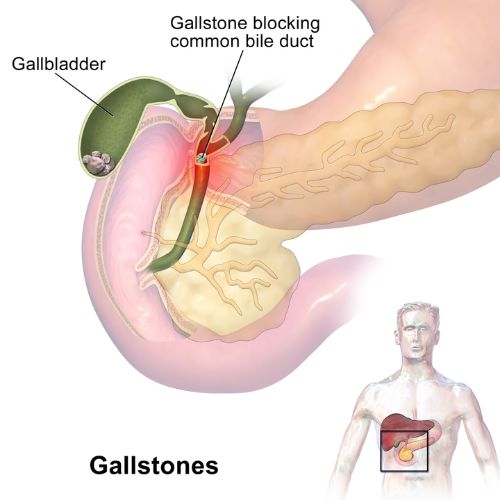Effective Laparoscopic Appendicitis Treatment for a Smooth Recovery
- Trusted Doctors & Top Hospitals
- Consultations with Expert Surgeons
- Extensive Support Throughout Your Treatment
Doctors
Hospitals
Presence in City
Book An Appointment
Understanding Appendicitis Laparoscopic Surgery: An Overview
Appendicitis is an inflammation of the appendix, a small, tube-like structure attached to the large intestine. This condition is typically caused by a blockage in the appendix, which can lead to infection and inflammation. If left untreated, appendicitis can result in serious complications, including a burst appendix, which can lead to peritonitis, a severe abdominal infection.
Laparoscopic surgery, also known as minimally invasive surgery, is a modern approach to treating appendicitis. This technique uses small incisions and specialized instruments to remove the appendix with minimal impact on surrounding tissues. It has several benefits over the traditional open surgery, which we will be discussing today.
Continue reading to learn more about appendicitis, including its symptoms, causes, diagnostic methods, and treatment options.
Disease name
Appendicitis
Symptoms
Abdominal pain, nausea, vomiting, fever, loss of appetite, and possible changes in bowel habits.
Causes
Blockage in the appendix, infection, inflammatory bowel disease, and other factors.
Diagnosis
Physical examination, blood tests, imaging tests (e.g., ultrasound, CT scan).
Treated By
General Surgeon, Colorectal Surgeon
Treatment Options
Laparoscopic Appendectomy, Open Appendectomy, Antibiotic Therapy
What is Appendicitis?
Appendicitis occurs when the appendix, a finger-shaped pouch projecting from the colon in the lower right abdomen, becomes inflamed or infected, filling with pus. This condition causes acute and chronic abdominal pain. If left untreated, it can lead to a burst appendix, spilling infection into the blood and other organs in the abdominal cavity, which can be serious and sometimes fatal.
Appendicitis can be classified into two main types:
Acute Appendicitis
This is the most common form, characterized by a sudden onset of symptoms, including severe abdominal pain. It requires prompt treatment to prevent complications.
Chronic Appendicitis
This type involves recurrent abdominal pain and inflammation over a longer period. It is less common and may be harder to diagnose.

Our Specialist Best Doctors for Appendicitis
Symptoms of Appendicitis
The symptoms of appendicitis can vary but typically include:
- Abdominal Pain: The primary symptom of appendicitis is pain starting near the navel and shifting to the lower right abdomen. The pain intensifies over time and worsens with movement.
- Fever: A low-grade fever often accompanies appendicitis, potentially escalating if the appendix ruptures.
- Loss of Appetite: A reduced desire to eat typically precedes nausea and vomiting.
- Nausea and Vomiting: Nausea and vomiting usually follow the onset of abdominal pain.
- Constipation or Diarrhea: Changes in bowel habits, such as constipation or diarrhea, may occur.
- Bloating: Bloating and a feeling of fullness in the abdomen are common.
- Tenderness and Rebound Pain: Tenderness and sharp pain when pressing and quickly releasing the lower right abdomen are key indicators.
Causes of Appendicitis
Several factors can lead to appendicitis, each contributing to the inflammation of the appendix. Here are some common causes:
- Blockages: Obstructions in the appendix, often due to stool buildup, constipation, or tumors, can trigger appendicitis.
- Inflammatory Bowel Disease: Conditions like Crohn’s disease and ulcerative colitis, which cause chronic inflammation in the digestive tract, can lead to appendicitis.
- Weakened Immune System: A compromised immune system struggles to fend off infections, increasing the risk of appendicitis.
- Urinary Tract Infections: Bacterial infections in the urinary tract can spread and cause inflammation in the appendix.
- Genetic Factors: Genetic predispositions, such as certain genetic syndromes, may contribute to the development of appendicitis.
- Diet: Diets high in processed, fatty, and sugary foods may lead to inflammation in the digestive tract, potentially causing appendicitis.
Diagnosis of Appendicitis
Diagnosing appendicitis involves several steps:
- Medical History and Symptoms Review: Your doctor will inquire about your symptoms, pain location, and any other relevant medical history.
- Physical Examination: A thorough abdominal examination will be conducted to assess pain and tenderness in the lower right abdomen.
- Imaging Tests:
- Ultrasound: Can help identify inflammation or abscesses in the appendix.
- CT Scan: Provides detailed images of the abdomen to confirm appendicitis and rule out other conditions.
- Blood Tests: To check for signs of infection or inflammation.
Why choose us
Get Lasting Relief from Anal FIssure Near You
some description text will go here some description text will go here some description text will go here some description text will go.
Trusted Doctors & Top Hospitals
Lorem ipsum dolor sit amet, consectetur adipiscing elit. Ut elit tellus, luctus nec ullamcorper mattis, pulvinar dapibus leo.
Consultations with Expert Surgeons
Lorem ipsum dolor sit amet, consectetur adipiscing elit. Ut elit tellus, luctus nec ullamcorper mattis, pulvinar dapibus leo.
Extensive Support Throughout Your Treatment
Lorem ipsum dolor sit amet, consectetur adipiscing elit. Ut elit tellus, luctus nec ullamcorper mattis, pulvinar dapibus leo.

Appendicitis Laparoscopic Surgery Procedure
During laparoscopic surgery for appendicitis:
Anesthesia
General anesthesia is administered to ensure you are asleep and pain-free throughout the procedure.
Small Incisions
Several small incisions are made in the abdomen.
Insertion of Instruments
A laparoscope, which is a thin tube with a camera, and other surgical instruments are inserted through the incisions made previously.
Removal of Appendix
The inflamed appendix is removed, and the instruments are withdrawn.
Closure
The small incisions are closed with stitches or adhesive strips.
Benefits of Laparoscopic Hernia Surgery
Laparoscopic surgery, also known as minimally invasive surgery, is a preferred method for treating appendicitis due to its numerous benefits:
- Less Invasive: Uses small incisions rather than a large open cut, reducing trauma to the body.
- Quicker Recovery: Patients typically recover faster and experience less postoperative pain compared to traditional open surgery.
- Reduced Scarring: Smaller incisions result in minimal scarring.
- Shorter Hospital Stay: Many patients are discharged within a day or two post-surgery.
- Faster Return to Normal Activities: With significantly quicker recovery period, you can resume regular activities sooner.
When to Consider Appendicitis Laparoscopic Surgery
Surgical intervention for appendicitis is often necessary in the following cases:
- Severe Symptoms: When symptoms are severe or worsening.
- Risk of Complications: To prevent the risk of appendix rupture or peritonitis.
- Diagnosis Confirmation: When imaging and tests confirm appendicitis, non-surgical treatments are not appropriate.
Cost of Appendicitis Laparoscopic Surgery
The cost of laparoscopic appendicitis surgery can vary based on several factors, including the hospital or clinic and location. Here is a general estimate for laparoscopic appendicectomy procedures in India:
Surgery Name | Surgery Cost |
Laparoscopic Appendectomy | ₹70,000 to ₹1,00,000* |
*Terms and Conditions Apply
When Should You Consult a Specialist for Appendicitis?
If you experience symptoms of appendicitis, it’s crucial to consult a specialist promptly to prevent complications. Seek medical attention if you notice:
- Severe Abdominal Pain: Persistent pain in the lower right abdomen that worsens over time.
- Nausea and Vomiting: Accompanied by abdominal pain, indicating a potential appendicitis.
- Fever: Mild to moderate fever alongside abdominal discomfort.
- Changes in Bowel Movements: Symptoms like constipation or diarrhea that persist with pain.
- Loss of Appetite: Significant reduction in appetite along with other symptoms.
Frequently Asked Questions
Yes. Compared to the conventional approach, laparoscopic surgery for appendicitis offers several benefits, such as smaller incisions, less scarring, less pain after the procedure, a quicker recovery time and a decreased chance of complications.
The actual process is really short, typically taking 30 to 60 minutes. However, you will recuperate for a while before returning home, usually a day or two.
Stick to light, easily digestible food for the first few days at least. Soups, broths, soft fruits and yoghurt are good options. Completely avoid spicy, oily or heavy foods that may upset your stomach. Keep drinking fluids to stay hydrated.
The incisions are tiny (usually less than 1 cm) and they heal with minimal scarring. Over time, they fade significantly and may be barely visible.
No! It is impossible to have appendicitis again after having your appendix removed. The only long-term solution is surgery.
If your appendix bursts, it can lead to an infection called peritonitis. Your surgeon will clean the abdominal cavity during the procedure and may prescribe you some antibiotics to prevent complications. You might need a slightly longer hospital stay to recover fully.
Your digestion may be a little slow during the first several days. Additionally, you may feel moderate constipation or bloating, which can be addressed with fibre and water intake and some light movement. Soon, your system will return to normal.
Yes! Laparoscopic surgery is commonly performed on children with appendicitis. It has faster recovery time and less post-op pain compared to open surgery.

Still Have a Question?
Reach out to our healthcare experts at Cure Me for discussing any concerns and queries regarding Appendicitis Surgery.
Looking for Laparoscopic Appendicitis Surgery? Get in Touch with Cure Me Specialists
Laparoscopic appendicitis surgery offers a minimally invasive solution for effective treatment and faster recovery. At Cure Me, our specialists use advanced techniques to ensure you experience less discomfort and a quicker return to daily activities. With personalized care tailored to your needs, we focus on delivering top-notch results. Connect with our experts today to schedule a consultation.
Start Your Search


